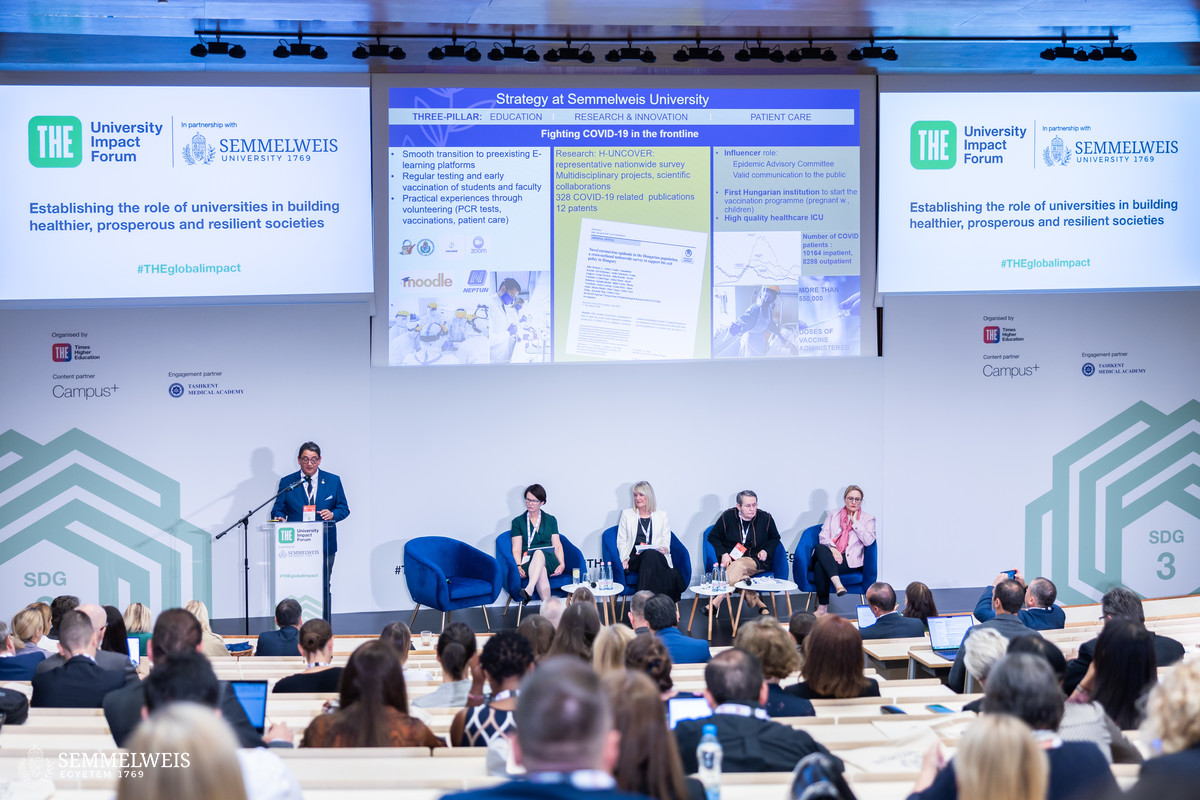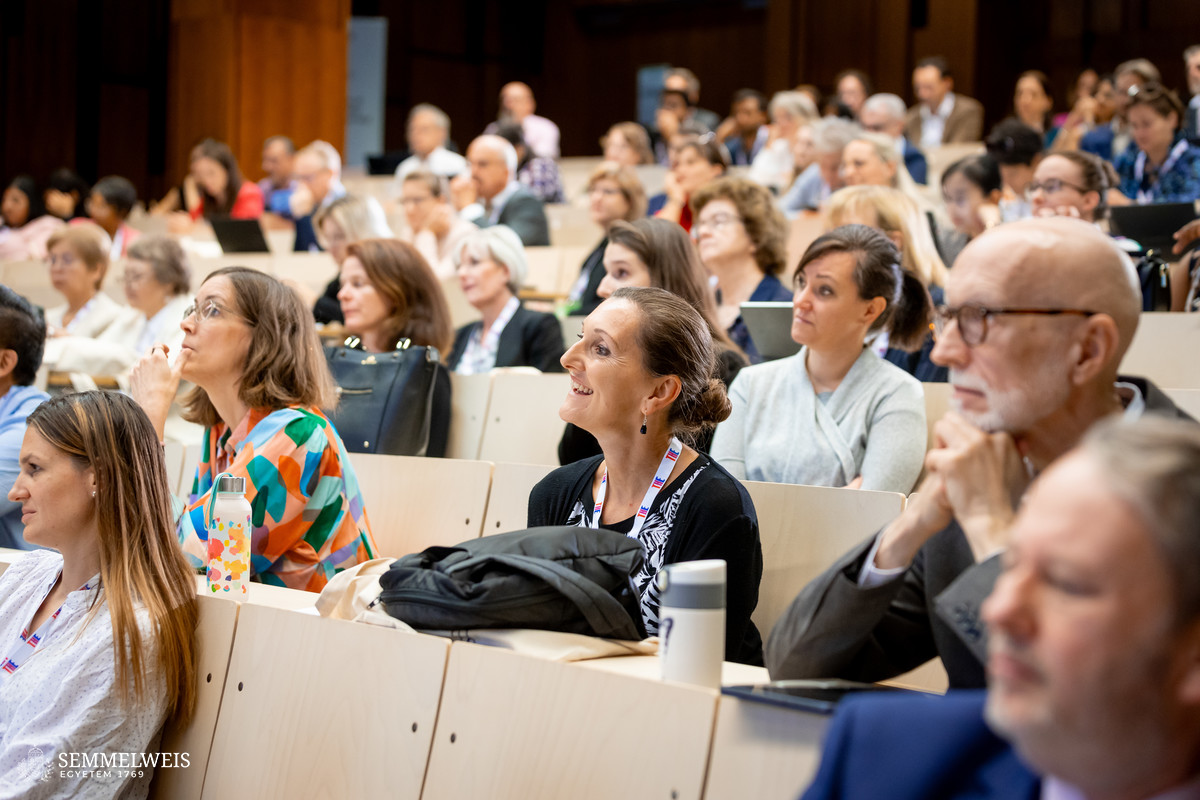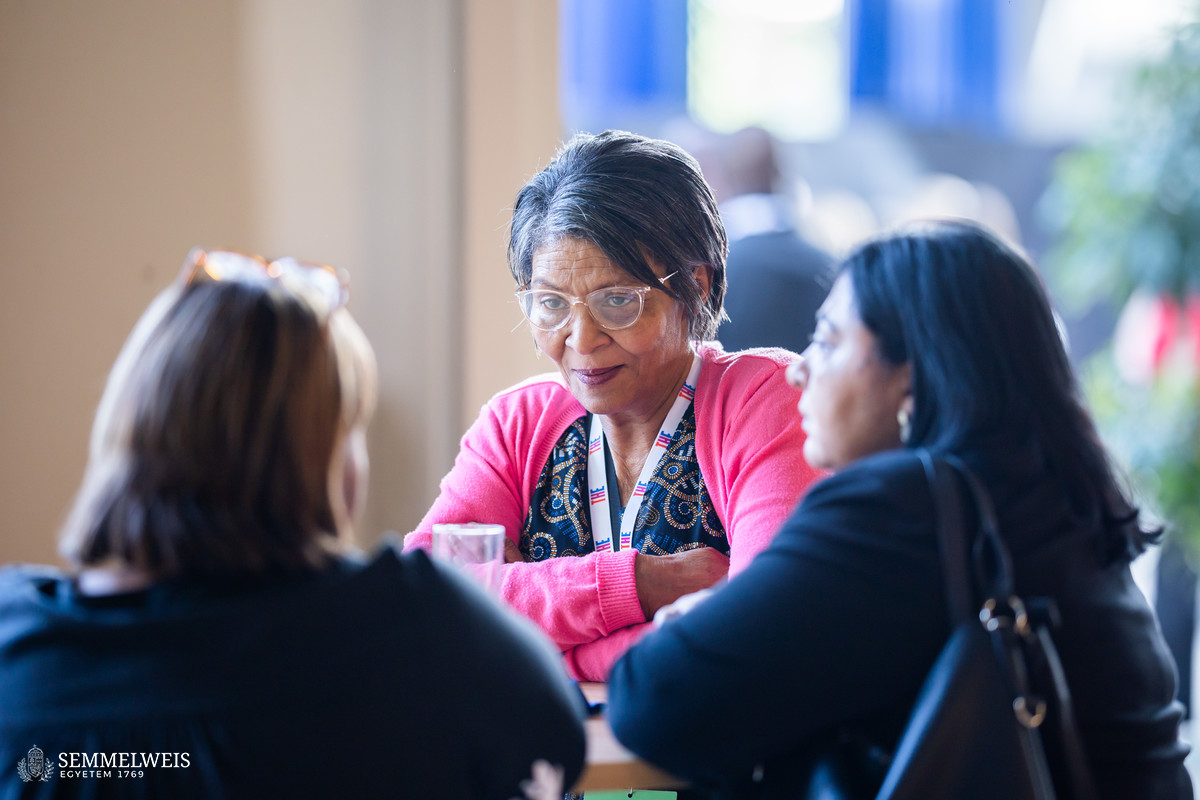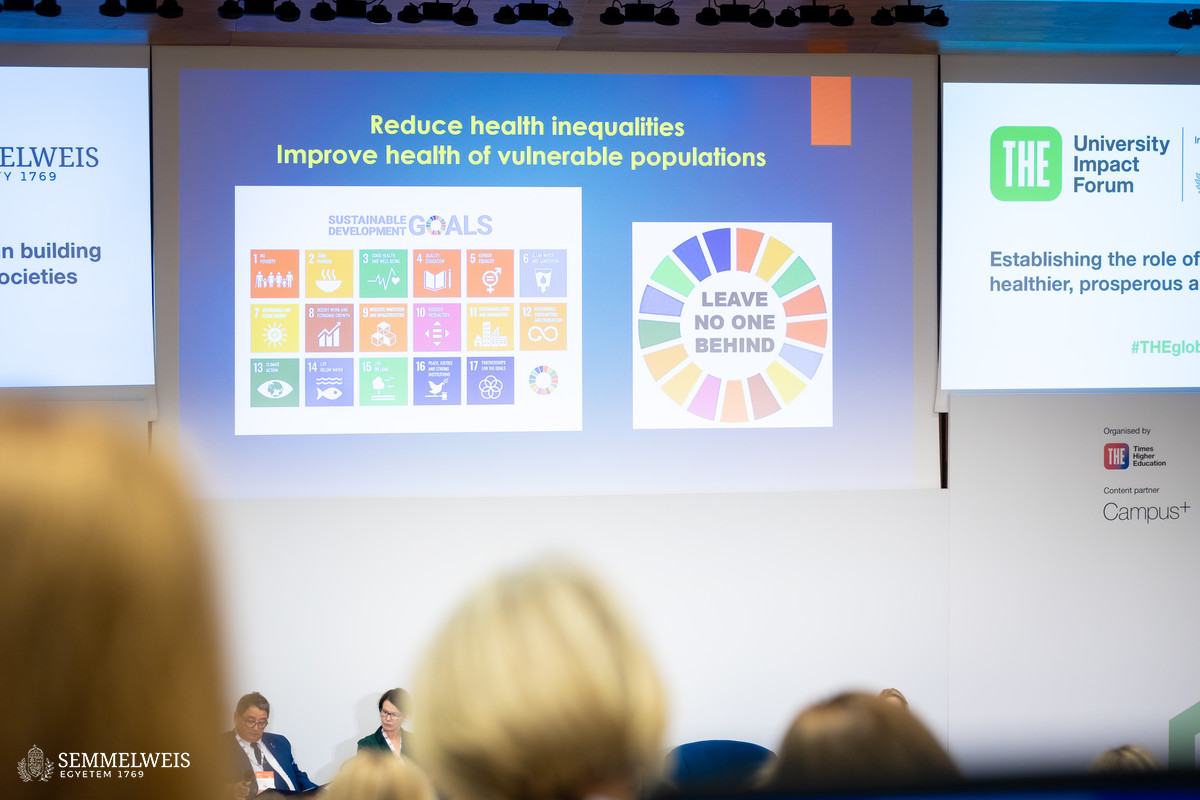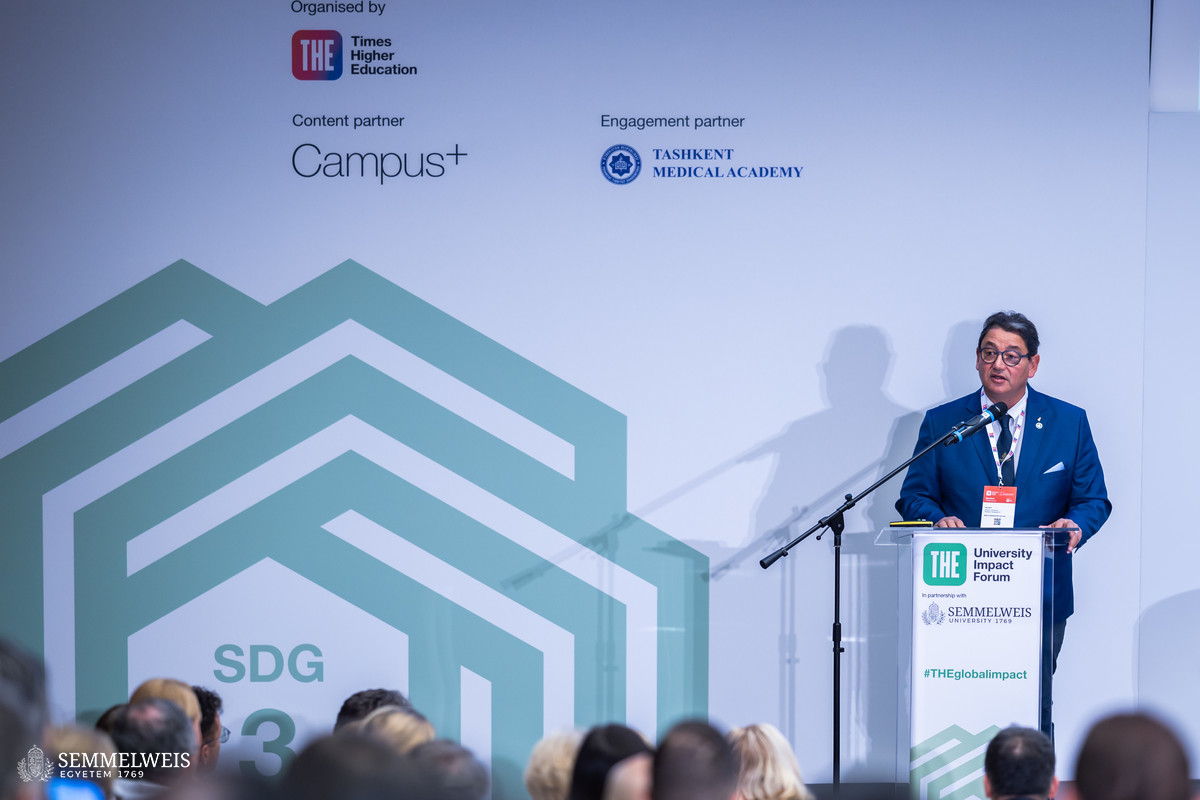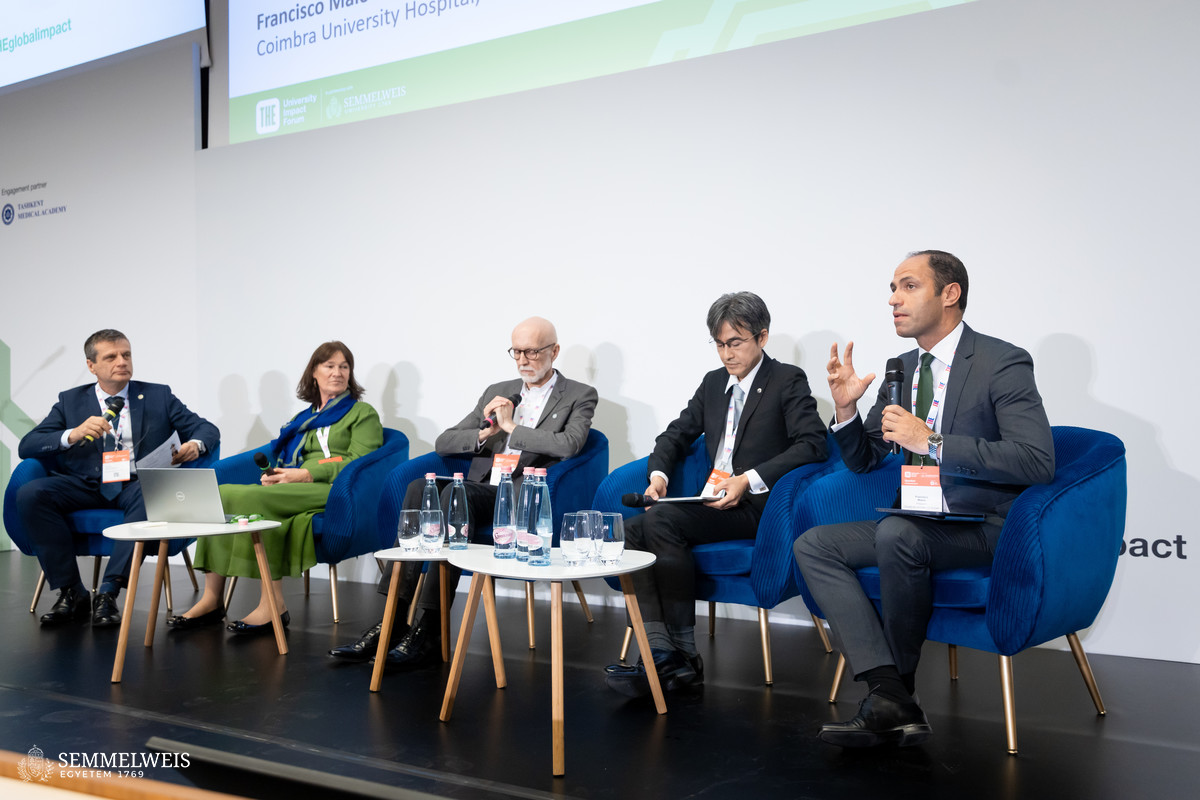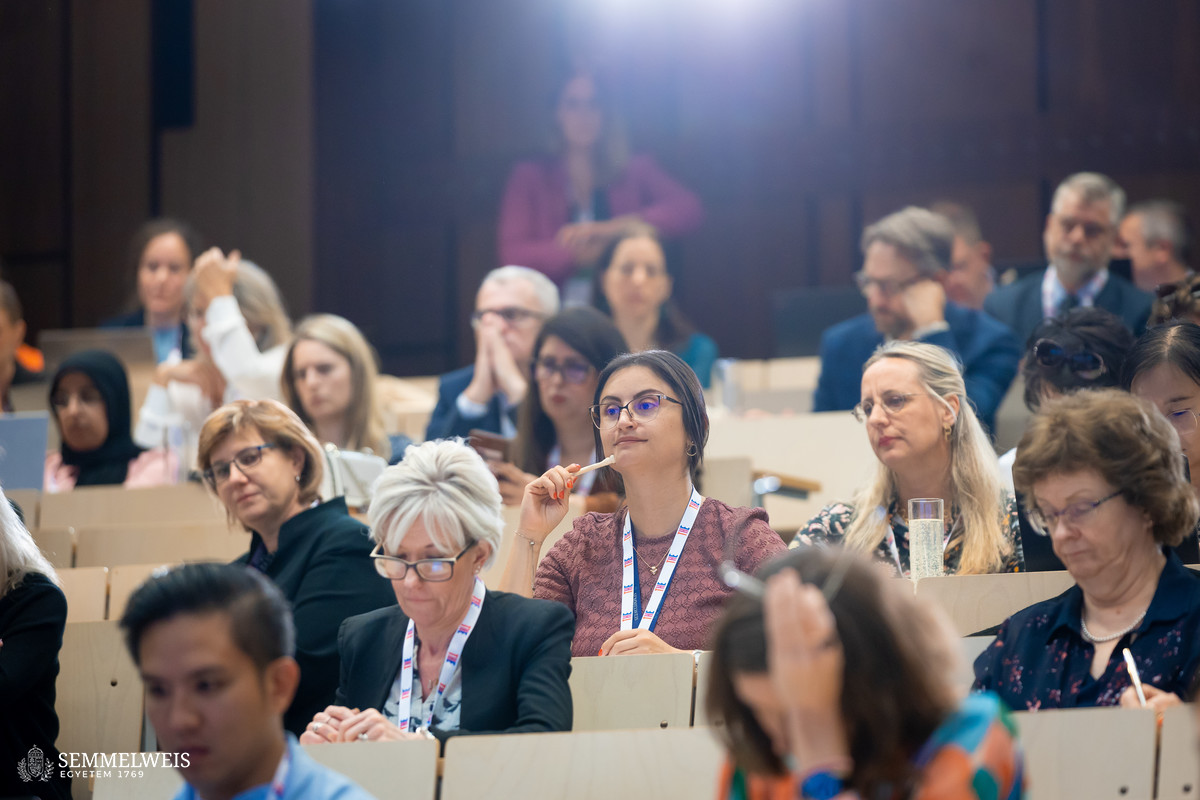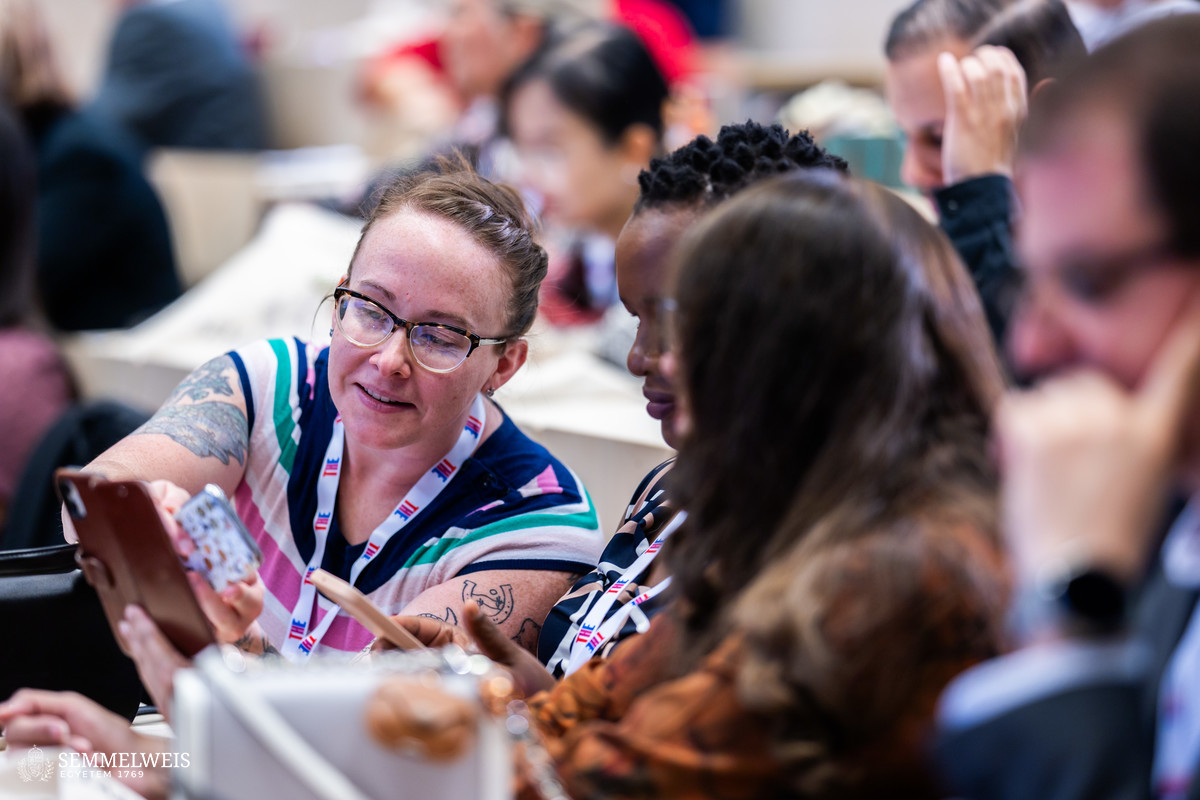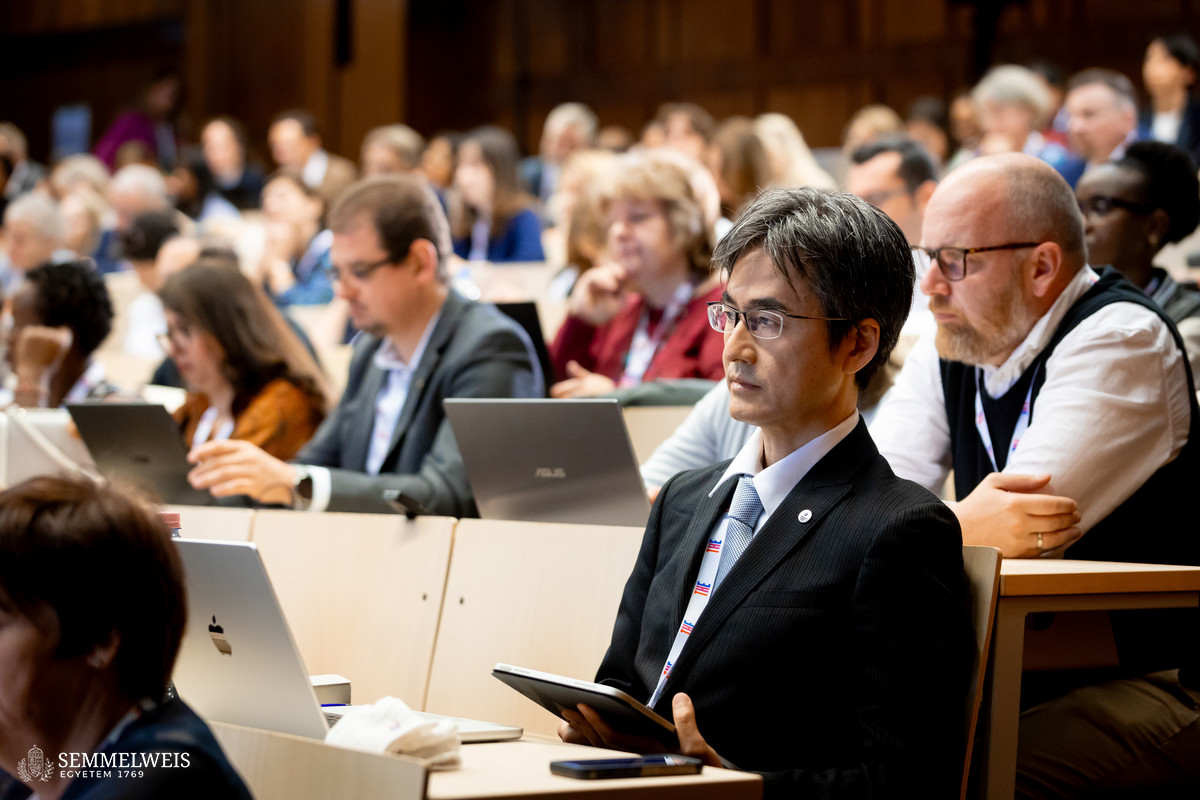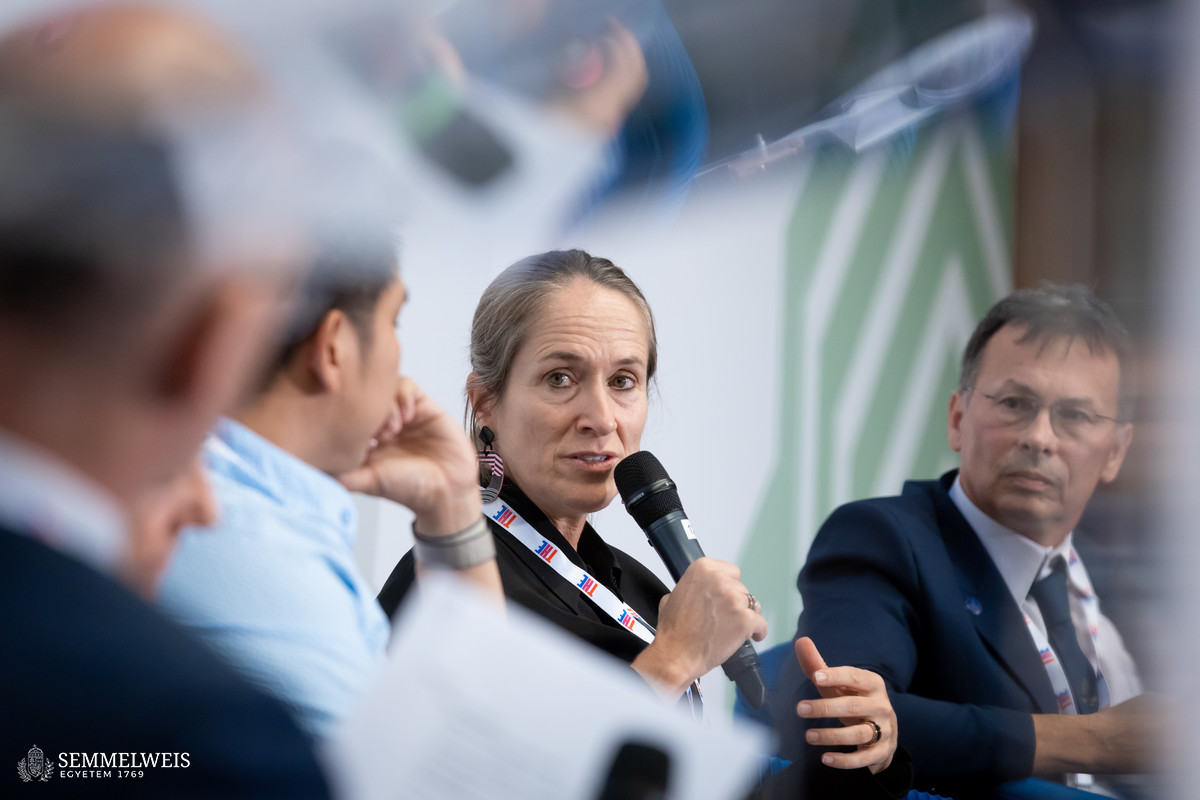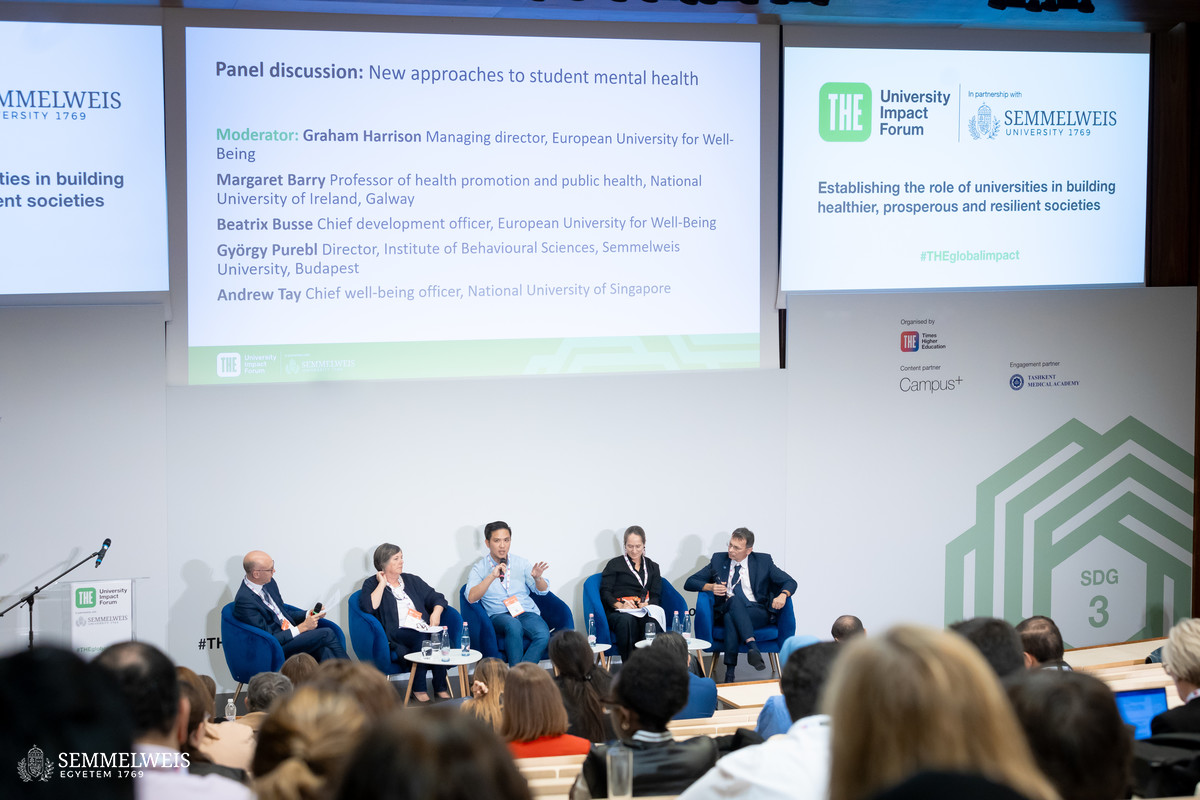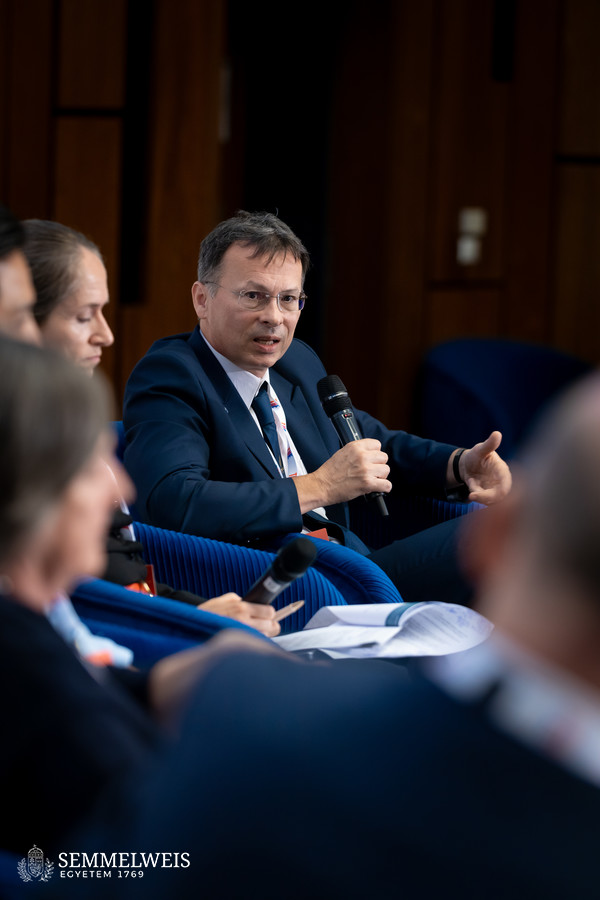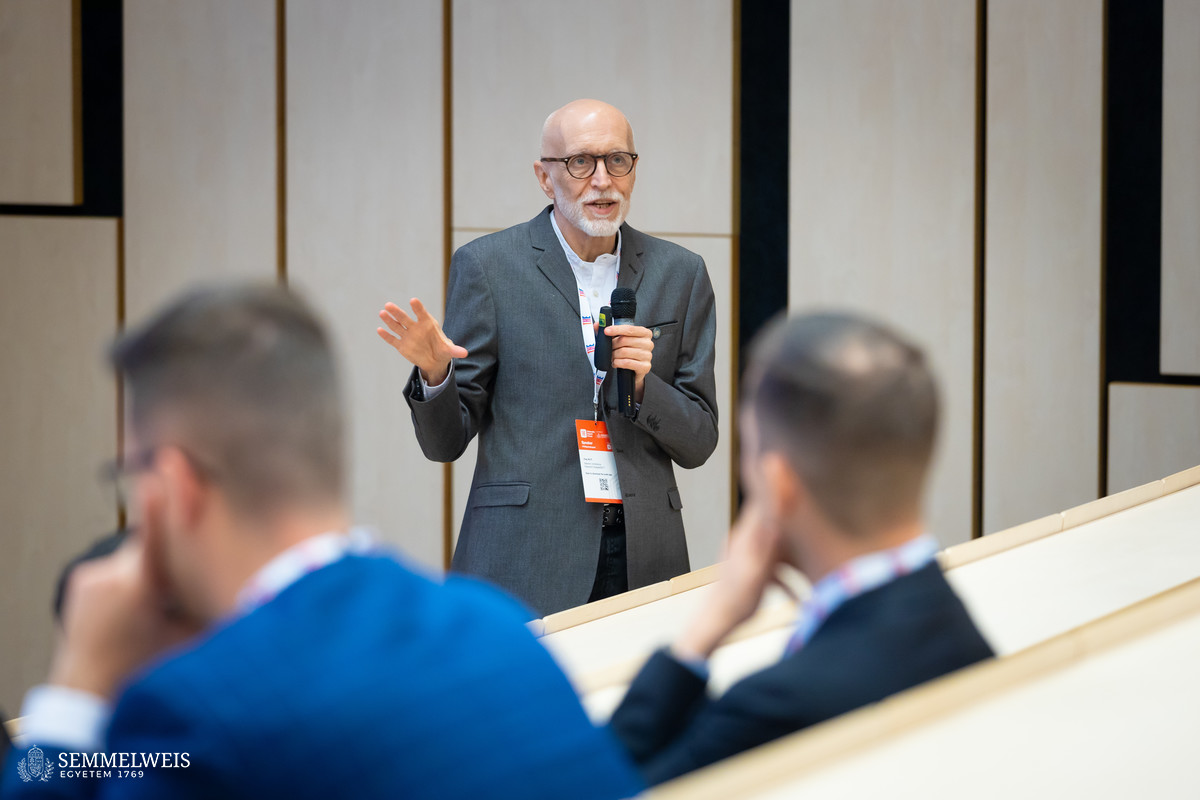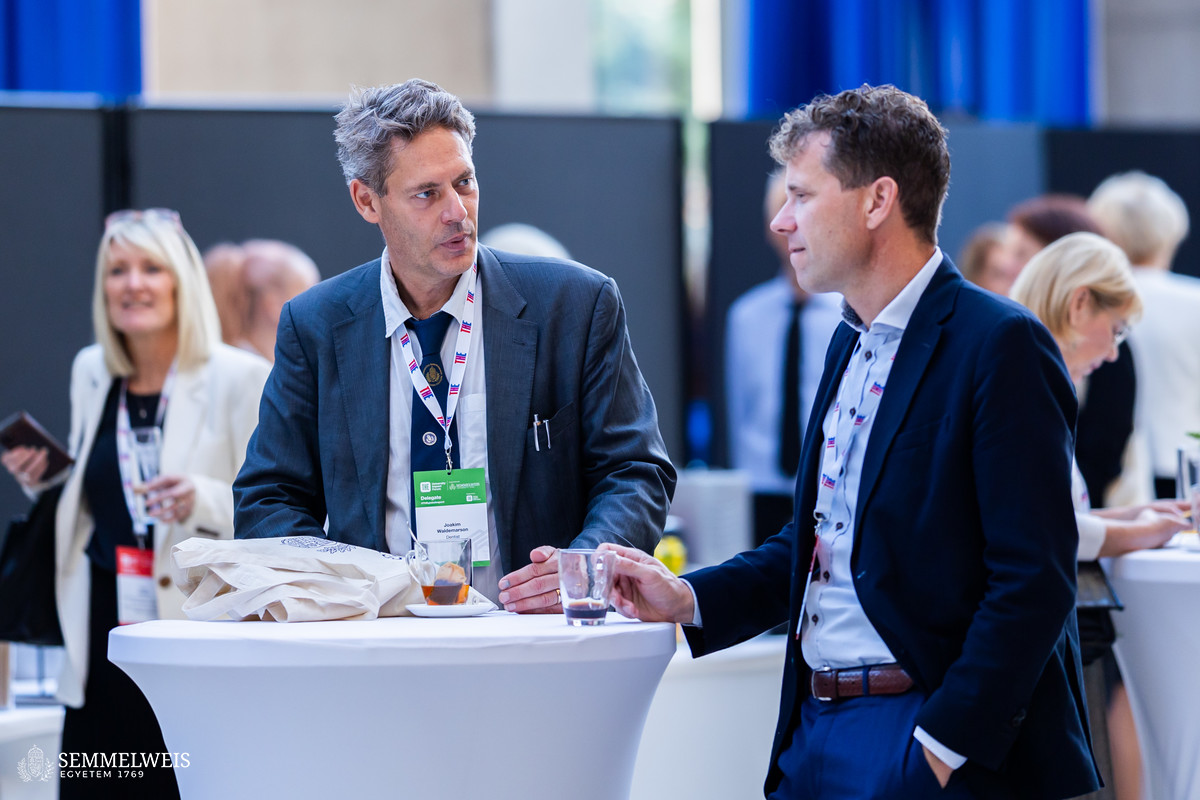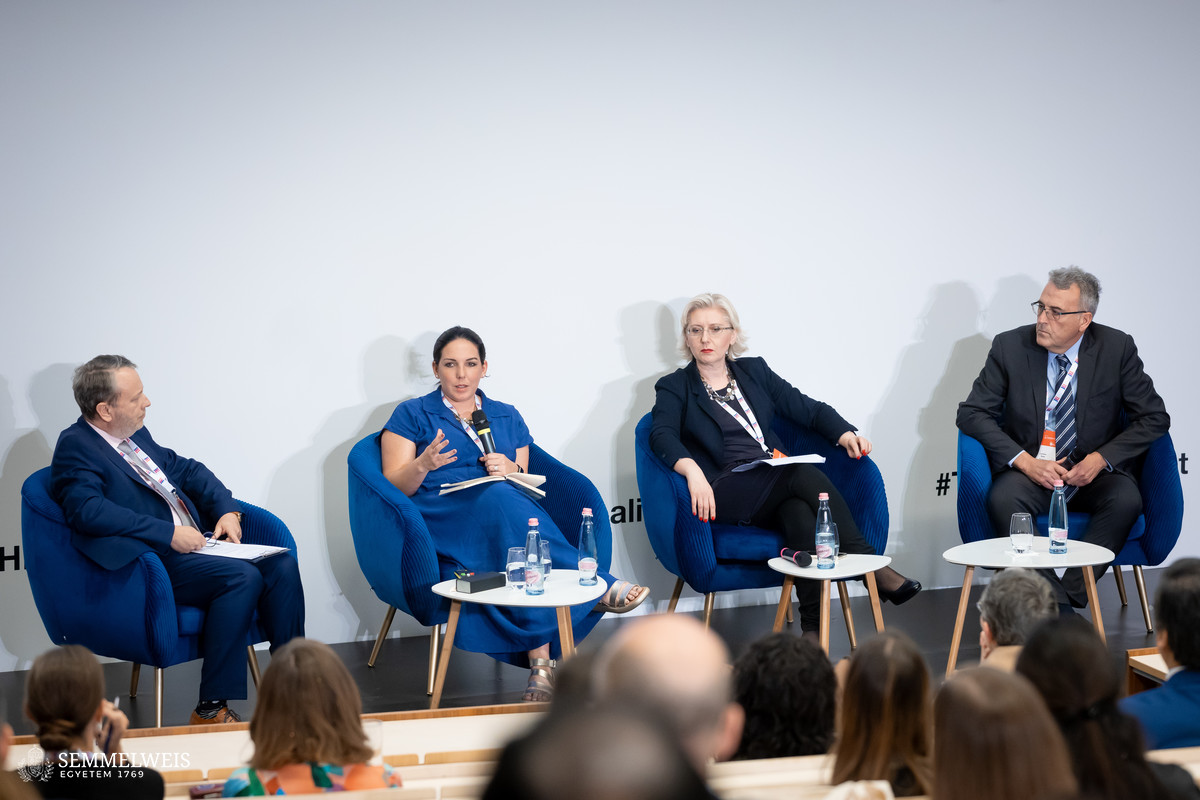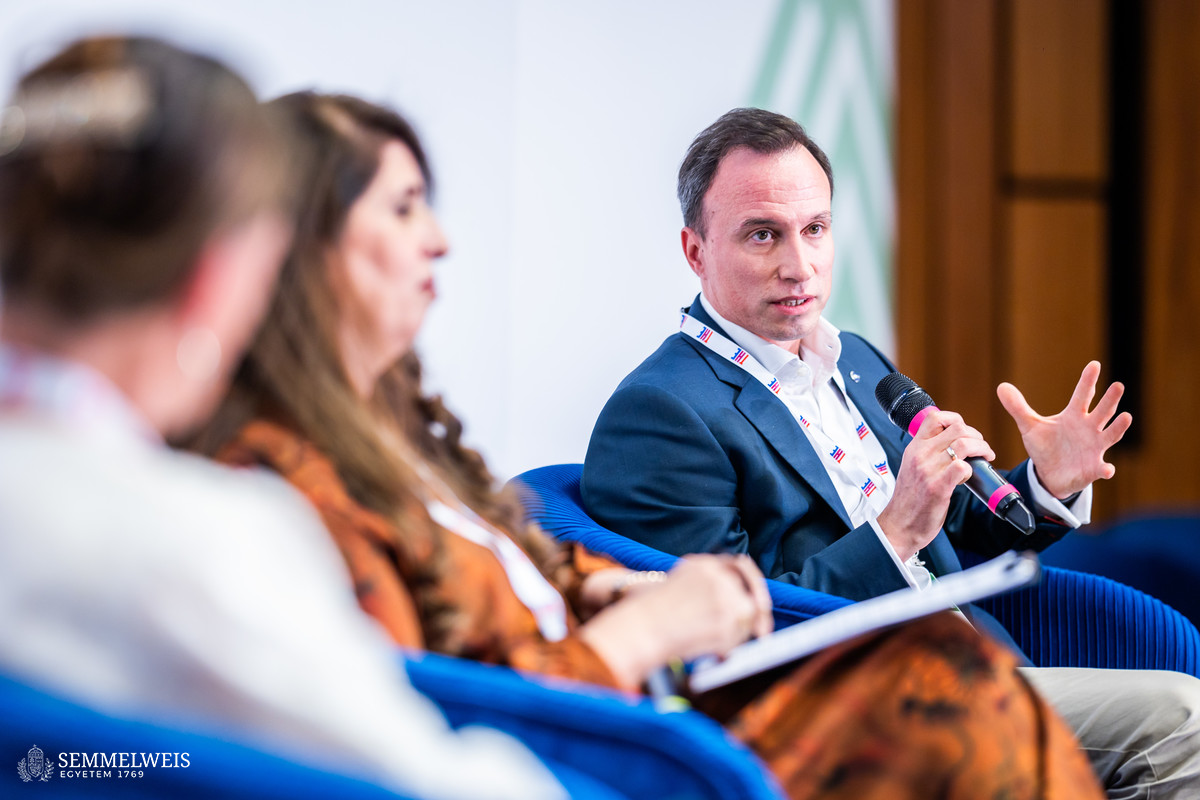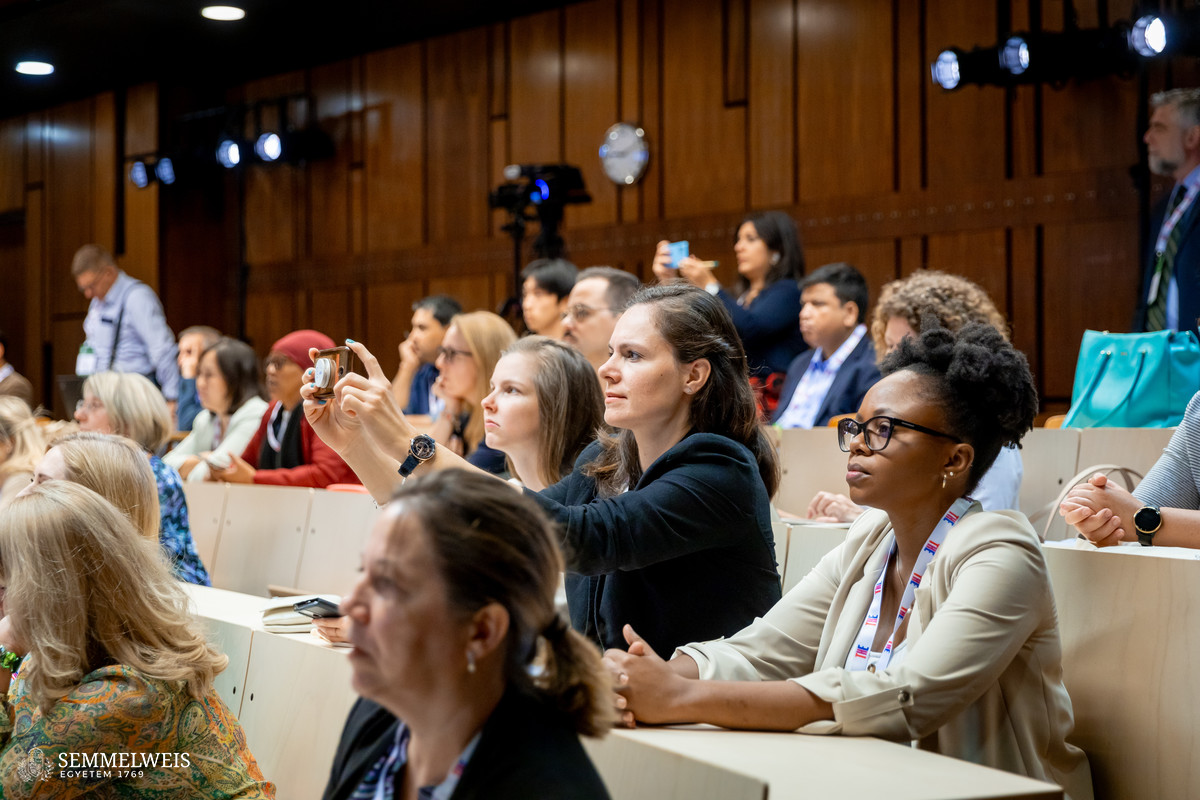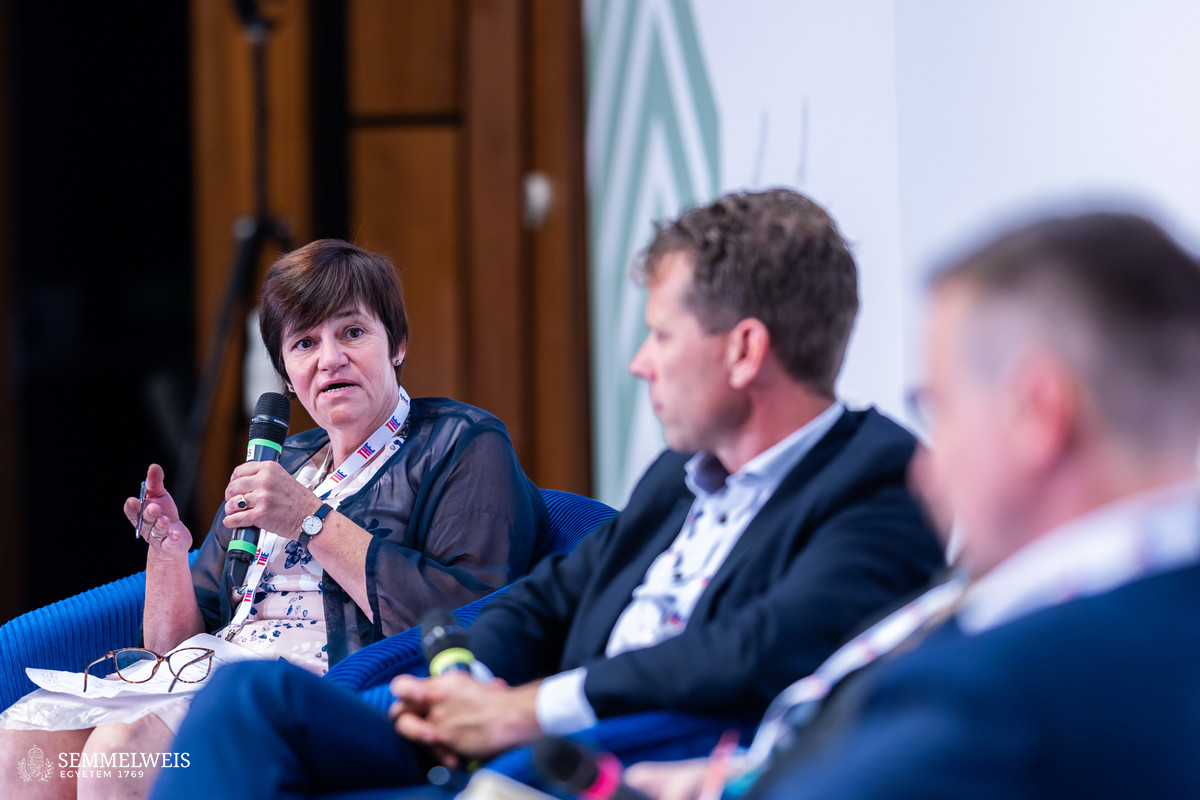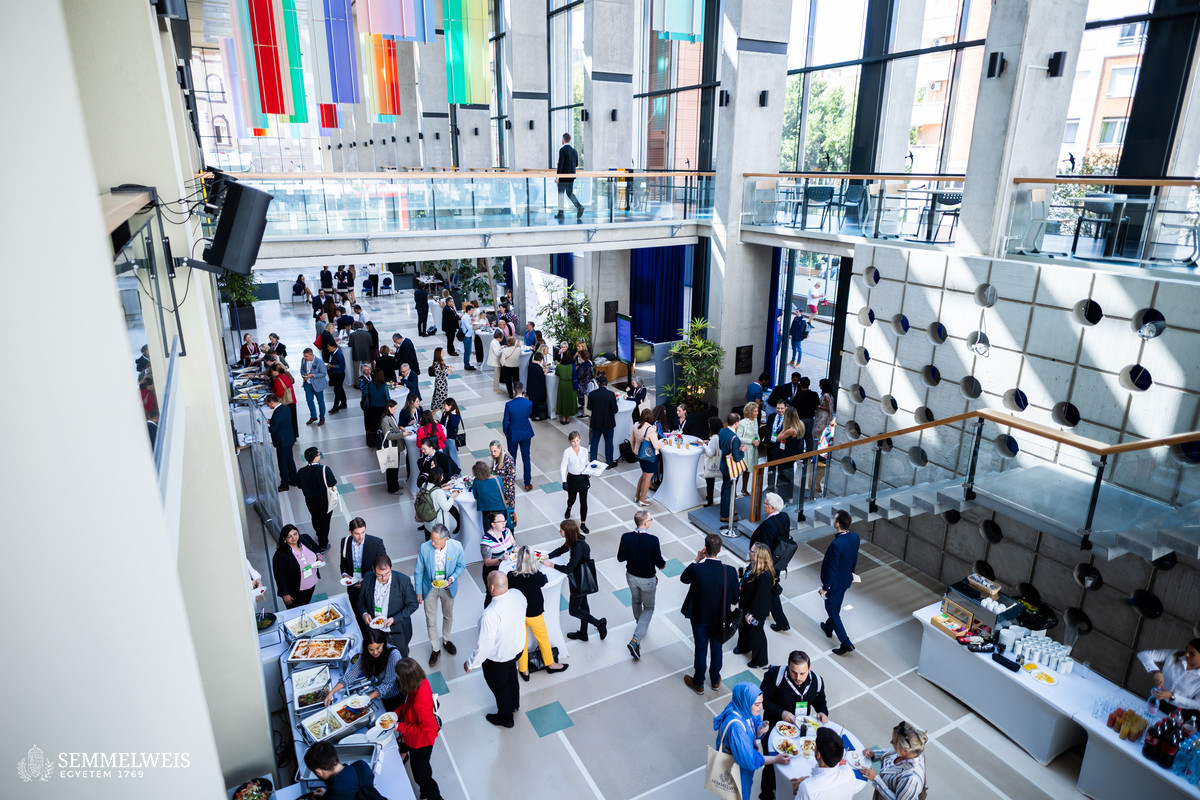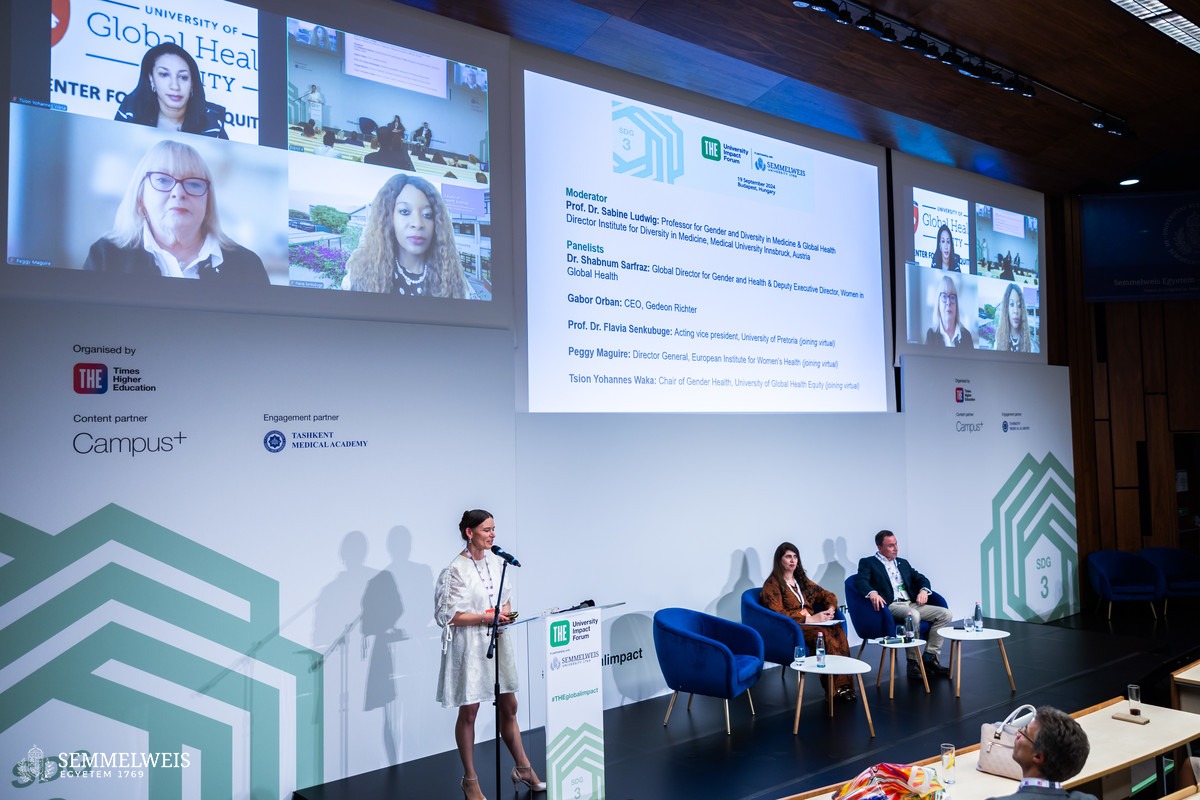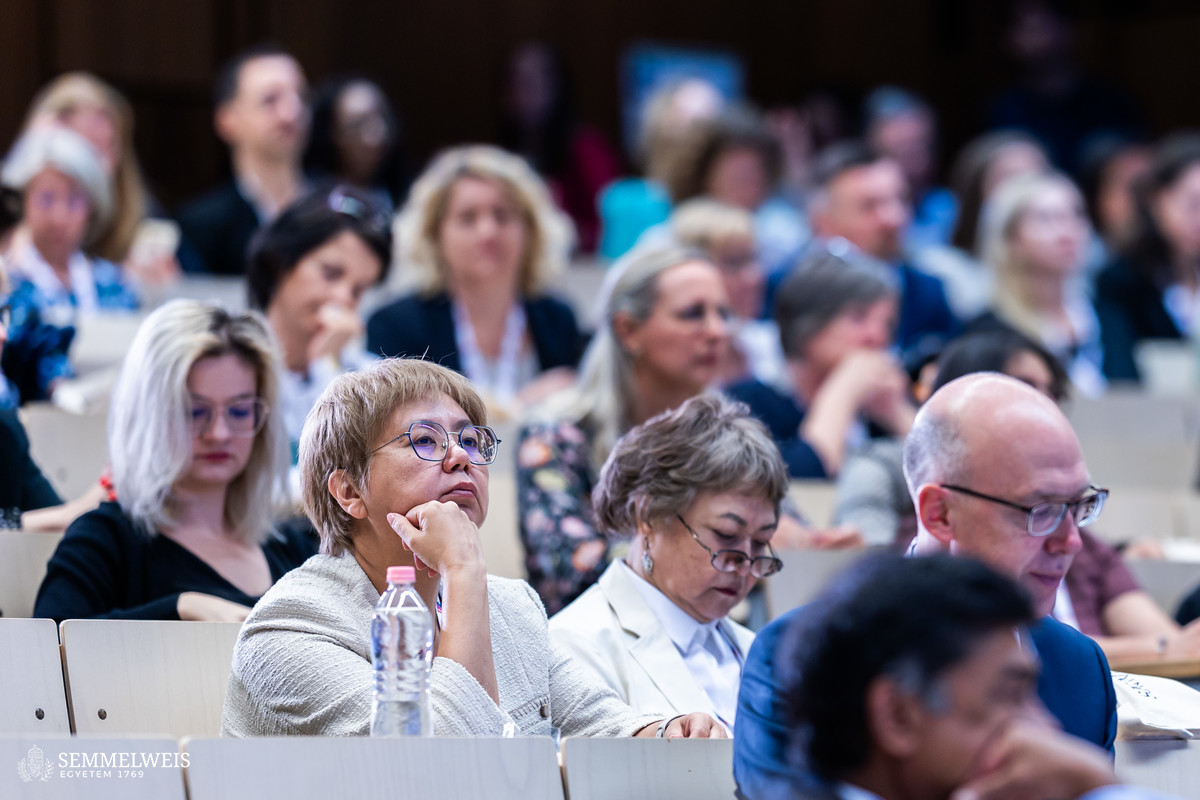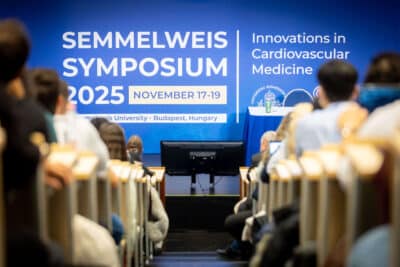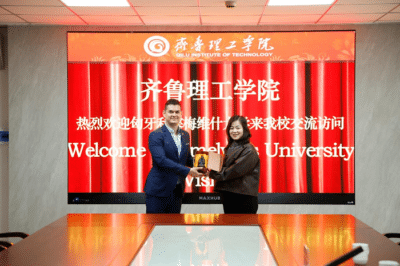In his opening address, Rector Dr. Béla Merkely highlighted the relevance of the all-day forum by noting that “practicing medicine is the most sacred vocation, in which our goal is to preserve and restore the physical and – I stress – the mental health of those entrusted to us. In fact, mental well-being can be healing in itself.” He added that one of the most important priorities of Hungary’s current EU Council Presidency was to combat cardiovascular diseases and to increase the number of organ transplants, in which Semmelweis University was expected to take a leading role as it was at the forefront of both specialties, both at the national and regional level. At the same time, he pointed out that belonging to the world’s elite was not only a privilege, it also came with hard work and responsibility. So as a higher education institution committed to improving people’s quality of life, Semmelweis University did not only work for the benefit of society and the Hungarian people but was also aware that the key to the university’s excellence lay in its human resources:
It is the community built by our students and staff that makes it great.
The first roundtable discussion focused on what higher education institutions can do to address critical health challenges in the future. In his keynote presentation, moderator Dr. Béla Merkely recalled the experiences at Semmelweis University and summarized the complex strategy the institute adopted to sustain its threefold operation in the field of education, research-innovation, and healthcare in the wake of the coronavirus pandemic. He elaborated on the university’s role in patient care during the pandemic, in addition to its e-learning platforms, regular testing and early vaccination programs, research efforts, and awareness-raising campaigns – the knowledge and experience gained in the process will also be useful in the event of a future public health crisis. In the second part of his talk, Dr. Béla Merkely stressed that health and well-being remained paramount for the sustainable development and economic viability of societies even post-health crisis, and cited the university’s Family Friendly and Caring University programs as examples of its agenda. He pointed out that in terms of health and well-being, there was also an increasing focus on healthy aging, which was illustrated by the fact that of the 4,200 students admitted to Semmelweis University this academic year, 160 are over 40 and 18 are over 60.
Stephanie Combs, Dean of the School of Medicine and Health at the Technical University of Munich, recalled that the pandemic had contributed to identifying problem areas in national training and patient care systems and that in the future, efforts would be made to support work-life balance for health professionals, while the focus in patient care would shift towards prevention as well as physical and mental well-being. Jane Norman, Provost and Deputy Vice-Chancellor of the University of Nottingham, highlighted the dangers of burnout in medical school and patient care. She also stressed the importance for medical students to acquire a cross-disciplinary, complex vision during their medical training. Tracy Robson, Deputy Vice-Chancellor for Education at the RCSI University of Medical Sciences in Ireland, presented the institution’s programs which aim to enhance the positive learning experience and mental health of medical students and the resilience of future professionals, but also offer a module focusing on healthy living or addictions. Dr. Róza Ádány, senior researcher at the Epidemiology and Surveillance Center of Semmelweis University, pointed out that 2018 was a turning point in the aging of the world’s population, as it was the first time that the global population share of people over the age of 65 exceeded the number of children under five. The situation is all the more worrying in Europe, where 22 of the world’s 25 oldest countries are located. As a result, over the past decades, several world organizations, including the OECD and the WHO, have developed complex strategies to promote physical and mental well-being.
Throughout the day, 35 speakers from 28 universities and professional organizations exchanged views with the delegates who came in the highest number from Hungary, Germany, the United Kingdom, Ireland, and Spain.
Dr. Péter Ferdinandy, Vice-Rector for Science and Innovations, chaired the panel on the role of artificial intelligence (AI) and innovative technologies in healthcare. The discussion touched on the role of AI and simulation technology in clinical education and how universities can collaborate with startups.
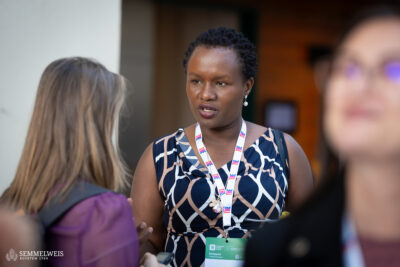 Vivian Cherono, a MATE PhD student of Kenyan origin, appreciated the practical advice on students’ mental health, in addition to the international networking and exchange opportunities, and found the presentation on the role of AI in diagnosing pneumonia the most interesting. “I hope that AI will become widespread in my home country’s healthcare as well, in line with one of the general principles of the UN’s Sustainable Development Framework, urging to leave no one behind.”
Vivian Cherono, a MATE PhD student of Kenyan origin, appreciated the practical advice on students’ mental health, in addition to the international networking and exchange opportunities, and found the presentation on the role of AI in diagnosing pneumonia the most interesting. “I hope that AI will become widespread in my home country’s healthcare as well, in line with one of the general principles of the UN’s Sustainable Development Framework, urging to leave no one behind.”
Dr. György Purebl, Director of the Institute of Behavioral Sciences, participated in the session on the mental health of university students. The topic was deemed relevant as evidence published in the International Journal of Mental Health Systems suggests that 35 percent of first-year university students report symptoms indicative of a lifetime mental disorder, while suicide is the fourth leading cause of death in the 15-29 age group. The session explored how universities can tackle the phenomenon, what innovative tools and technologies can be deployed, how to alleviate the pressure on students during their studies, and how to reduce the stigma associated with mental health issues.
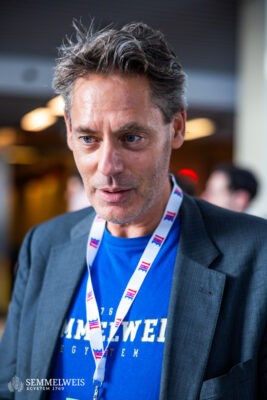 Dr. Joakim Waldemarson received his diploma from Semmelweis University in 2020 and has been practicing dentistry here for several years. For him, the key to health and well-being is family and quality time spent together, as well as playing sports and games, which can replace eating as a displacement activity to release happiness hormones in the brain and change body chemistry.
Dr. Joakim Waldemarson received his diploma from Semmelweis University in 2020 and has been practicing dentistry here for several years. For him, the key to health and well-being is family and quality time spent together, as well as playing sports and games, which can replace eating as a displacement activity to release happiness hormones in the brain and change body chemistry.
The agenda also included the state of healthcare in an era of economic and political challenges, which could result in a global shortage of 13 million nurses by 2030, according to a forecast by the World Economic Forum. The panel discussion also looked at what clinical leaders can do to manage declining workforce and health inequalities.
The panel discussion moderated by Dr. Beáta Dávid, Vice-Dean of Semmelweis University’s Faculty of Health and Public Administration and Director of the Institute of Mental Health, discussed how universities can develop a strategy bringing together science and policy when next faced with an emergency.
Dr. Alán Alpár, Vice-Rector for International Studies, moderated the roundtable on cross-cultural cooperation, which focused on how university partnerships can improve research and health innovation and address domestic health challenges.
A key theme of the Forum was the healthcare of women, who continue to be disproportionately affected by inequalities. Speakers reviewed what universities can do to remove barriers that might prevent medical access, how innovation can drive improvements to health outcomes for women, and how women’s voices can be elevated in R&D.
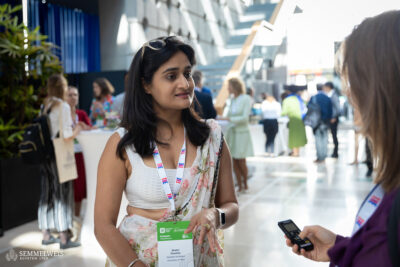 Shalini Chauhan arrived in Hungary from India and is an assistant professor at the University of Pécs Medical School. “I’m currently researching the clinical differences induced by yoga intervention, so this is the best place for me to come, as all the speakers here focus on health maintenance and prevention. It would be difficult to select a single topic, but perhaps the student mental health support programs caught my attention the most, and I look forward to the opportunity to collaborate,” she added.
Shalini Chauhan arrived in Hungary from India and is an assistant professor at the University of Pécs Medical School. “I’m currently researching the clinical differences induced by yoga intervention, so this is the best place for me to come, as all the speakers here focus on health maintenance and prevention. It would be difficult to select a single topic, but perhaps the student mental health support programs caught my attention the most, and I look forward to the opportunity to collaborate,” she added.
Judit Szabados-Dőtsch
Photos by Bálint Barta, Boglárka Zellei – Semmelweis University
